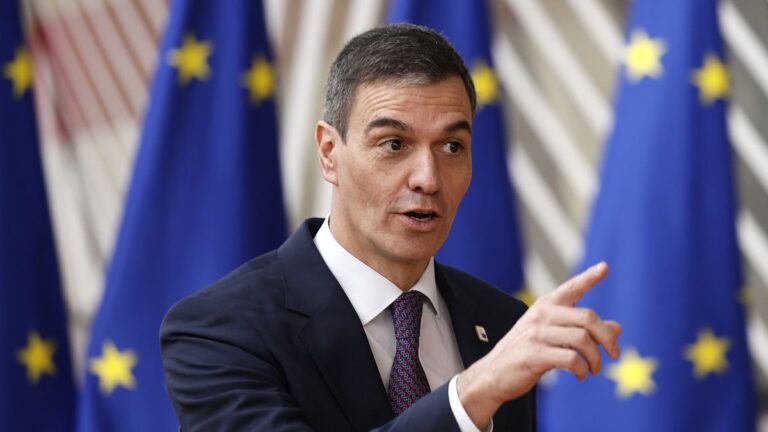Spain’s center-right PP party came out on top in Sunday’s European elections, but its comeback did not lead to the downfall of Prime Minister Pedro Sánchez’s government as conservatives had hoped.
advertisement
From the resignation of the Belgian prime minister to early voting in France, the European elections have had ripple effects across the continent.
In Spain, the Popular Party (PP) won a spectacular victory, but contrary to conservative hopes, the socialist government of Pedro Sánchez did not fall.
While the PP gained new popularity, Sanchez’s socialist party, the PSOE, maintained a solid base of support.
“It is true that we are committed to the idea that resistance is also a path to victory,” PSOE spokeswoman Ester Peña said.
The Spanish prime minister still has three years left in his term and there are currently no plans to call early elections.
Sanchez’s future
“From an institutional point of view, nothing has changed. Parliament remains as it is and there is still a majority in support of Pedro Sánchez,” political analyst Jaime Courbois told Euronews.
But the real test for Mr Sanchez is yet to come: his electoral strategy has strained relations with key allies, including the left-wing movement Smar and Catalan parties.
Sanchez’s coalition partners have lost support in this year’s European elections compared to last year’s popular vote, with analysts saying support may have shifted from Smar to the Socialists.
Those tensions are expected to come to a head as negotiations begin for the presidency of Catalonia, where the Socialists won regional elections but fell short of a majority.
Catalonia was one of the few regions in Spain where the Socialists outperformed the PP, coming in first in two regions, beating pro-independence parties such as Junts and the ERC.
But after Sunday’s European elections, Yolanda Diaz, vice president of Spain’s coalition government and leader of the Smar party, decided to step down from her position as the movement’s coordinator.
“The voice of the people has been heard and I will take responsibility. For this reason, I have decided to step down as Smaal coordinator,” she said.
Diaz has announced he will remain in his role as vice president and labor minister, and his group has already said it will take a more active role in the coalition government and push for more distinctive policies.
Unified fear
Rivalry between Sanchez’s allies and the Socialists in Congress has already stalled some efforts and prevented the prime minister from passing a general budget.
Despite these internal challenges, one factor seems to unite Sanchez’s diverse parliamentary supporters: concern about the possibility of a coalition government between the center-right and the far-right.
The prospect of a PP-Vox coalition government may encourage Sánchez’s allies to unite.
This shared concern may be the glue that holds together an otherwise fragmented alliance and ensure that the Sánchez administration can continue to function despite potential challenges.

